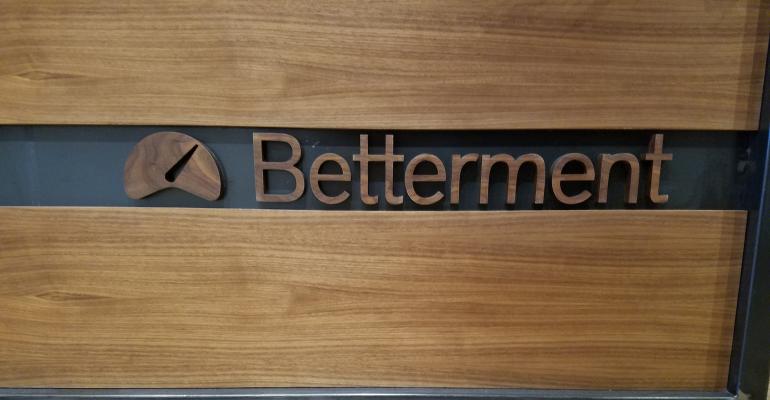After waiting on the sidelines while its competitors began offering cryptocurrency investment options, Betterment is making its entrance into the digital asset world with the purchase of automated crypto investment platform Makara, according to an announcement. The transaction, which will see Makara's “crypto experts” and engineers joining Betterment, is expected to close by the end of the first quarter. In the months after the transaction closes, Betterment's retail customers, as well as advisors associated with the firm, will see a new crypto offering.
While intended for retail investors as a stand-alone product, Makara is built on algorithmic trading software called Strix Leviathan that was first launched in 2018 and intended for use by hedge funds. With crypto growing in popularity among retail investors, Strix co-founder Jesse Proudman spun off Makara, registered it with the SEC as an automated investment advisor and opened the platform to retail investors in 2020, according to materials on the firm's website.
Investors currently using Makara get access to “baskets” of cryptocurrencies that are automatically rebalanced according to the firm’s “sophisticated algorithms.” Baskets range from simple single-coin investments, like the “Bitcoin” or “Ethereum” basket, where the entirety of the basket consists of a single cryptocurrency, to thematic baskets like “Universe,” which contains 48 cryptocurrencies alongside U.S. dollars. Currently Makara lists eight baskets on its site, including one around the theme of the “Metaverse” and another called “Inflation Hedge.”
Makara uses Gemini to custody crypto assets, which charges a fee of up to 0.35% per transaction that is passed along to the end investor. Makara, itself, charges an annual advisory fee of 1.0% on all assets under management in multiasset and actively managed baskets (in addition to the custody fee). The fee is debited on a monthly basis from client accounts. Fees are waived on single-asset baskets, such as Bitcoin or Ethereum.
Makara has a $50 account minimum.
Betterment users won’t see their portfolios immediately incorporate crypto, according to materials provided on Betterment's site. “Once built, our new crypto portfolios will be offered alongside our current suite of investments,” according to the site. Betterment plans to eventually support crypto portfolios in its app, but currently doesn’t support sign-ups for, or use of, Makara within the Betterment app.
"Makara will be incorporated across the Betterment and Betterment for Advisors business lines," said Jon Mauney, general manager of Betterment for Advisors, with the promise of additional information for advisors coming in a matter of weeks. Crypto portfolios won't be available to 401(k) customers, but the firm is "review[ing] their suitability for the future."
Less than a year ago Betterment was still in the “early innings” of evaluating its crypto strategy. But with Tuesday’s announcement, the firm is plunging in and offering what it refers to as “simple, expert-managed crypto portfolios and education to investors ranging from the crypto curious to crypto sophisticates.”
Unlike competitor Wealthfront, which caps individual portfolios at no more than a 15% allocation to crypto, Betterment "does not plan to place hard limitations on what percentage of a client's portfolio can be allocated to crypto," according to Mauney. "However, we will give guidance and advice about concentration risk and diversification."
"Crypto is here to stay,” declared Betterment CEO Sarah Levy, in a statement. "Makara is unique in offering consumers managed crypto portfolios combined with the guidance and ease-of-use that have defined Betterment. Makara is to crypto today what we are to traditional investing—since pioneering robo-investing a decade ago."
Betterment isn’t the first automated investing platform to undergo a major change in 2022.
Late last month, Wealthfront backed down from a promise stretching back over a decade: that it would remain a software-only investing platform. With its sale to UBS for $1.4 billion, Wealthfront will eventually act as the digital gateway to UBS’ remote human advisors.
Makara co-founder and CEO Jesse Proudman expects the acquisition to help Makara grow with “both retail investors and financial advisors,” according to a statement.
Last year Levy promised to pay more attention to Betterment’s advisor business, as she introduced her vision for the firm, after taking over CEO duties from co-founder Jon Stein in late 2020. Months later, Betterment raised $160 million in capital, consisting of a $100 million credit facility and $60 million in a Series F equity round, with the funds earmarked for expanding the firm’s business-to-business units.
Makara will continue to operate as an independent offering and brand following the closing of the deal. Terms were not disclosed.





